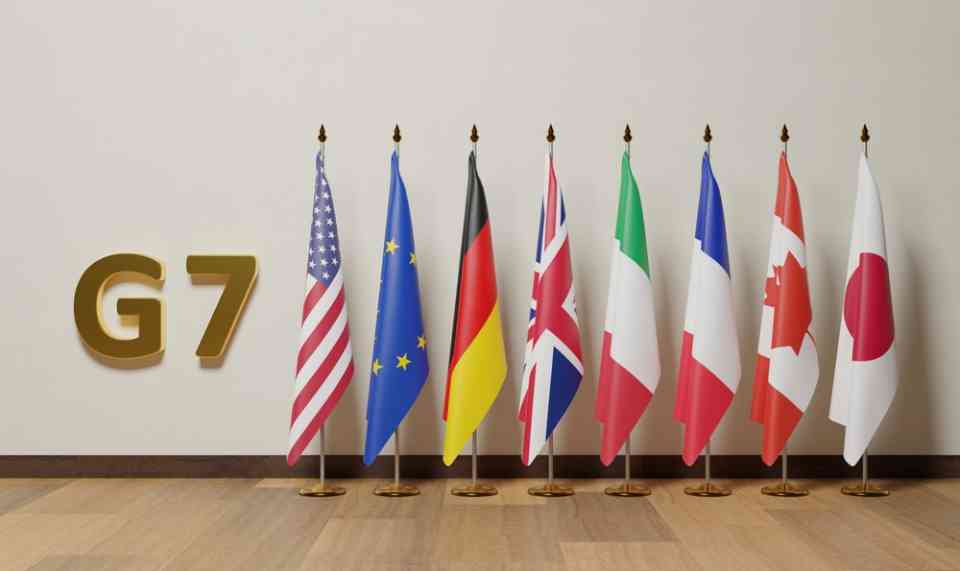G7 Nations Increase Fossil Fuel Subsidies Despite Pledge to Cut Emissions

A new report has revealed that the G7 group of industrialized nations has significantly exceeded its self-imposed targets for reducing fossil fuel subsidies by 2025, instead channeling record amounts into supporting climate-damaging coal, oil, and gas.
The G7, comprising Canada, France, Germany, Italy, Japan, the UK, and the US, along with the EU, had pledged in 2016 to phase out harmful fossil fuel subsidies by 2025. However, according to an analysis of International Monetary Fund (IMF) data, subsidies for these fuels have instead increased by 15%, reaching a total of $1.36 trillion in 2023.
Commissioned by Greenpeace Germany and conducted by the Forum for an Ecological and Social Market Economy (FöS), the report identified Italy as the country with the most significant increase in fossil fuel subsidies, raising them by 166% between 2016 and 2023. Germany followed, with an increase of 49%.
Greenpeace International’s Climate & Energy Programme Lead, Virag Kaufer, criticized the G7 nations for failing to meet their commitment, pointing out that despite nearly a decade of preparation, they had not only missed their target but had also escalated public spending on fossil fuel incentives. Kaufer emphasized the urgency of redirecting these funds toward a just and sustainable energy transition, particularly as 2025 had already begun with severe climate-related disasters and record-breaking profits for fossil fuel corporations.
Among the G7 nations, only Canada has marginally reduced its fossil fuel subsidies since 2016, with an 11% decrease. All other countries have increased their financial support for fossil fuels. The report’s analysis of IMF figures indicated that in 2023, the United States led in total fossil fuel subsidies, allocating $790 billion, followed by Japan with $269 billion and Germany with $114 billion.
The report also attributed much of the rise in fossil fuel subsidies to the surge in energy prices following Russia’s invasion of Ukraine. In Germany, policies such as gas and electricity price freezes reduced VAT rates on gas, and industry-wide relief measures accounted for 38% of the country’s total fossil fuel subsidies in 2023. While many of these measures were initially introduced as temporary, several remain in place.
Greenpeace Germany energy expert Sophia van Vügt called for a shift in policy, arguing that Germany could no longer afford to allocate billions in tax revenue to subsidize company cars and air travel. She advocated for redirecting these funds toward modernizing the country in a socially just manner. Van Vügt also criticized Germany’s fossil fuel subsidy policies for creating incentives that undermine climate goals, suggesting that the government would be better off implementing a socially staggered climate tax rather than continuing to fund environmentally harmful practices.
The study did not account for the expansion of liquefied natural gas (LNG) infrastructure due to a lack of available data, despite its significant climate impact.
Have you read?
Best countries for hiring freelancers.
Highest Paid Big Pharma CEOs And Top Executives.
Best Websites For CEOs, business leaders, and high-net-worth individuals.
Best Executive Search Firms And Consultants in America.
Revealed: Most Powerful Women In The World.
Bring the best of the CEOWORLD magazine's global journalism to audiences in the United States and around the world. - Add CEOWORLD magazine to your Google News feed.
Follow CEOWORLD magazine headlines on: Google News, LinkedIn, Twitter, and Facebook.
Copyright 2025 The CEOWORLD magazine. All rights reserved. This material (and any extract from it) must not be copied, redistributed or placed on any website, without CEOWORLD magazine' prior written consent. For media queries, please contact: info@ceoworld.biz








